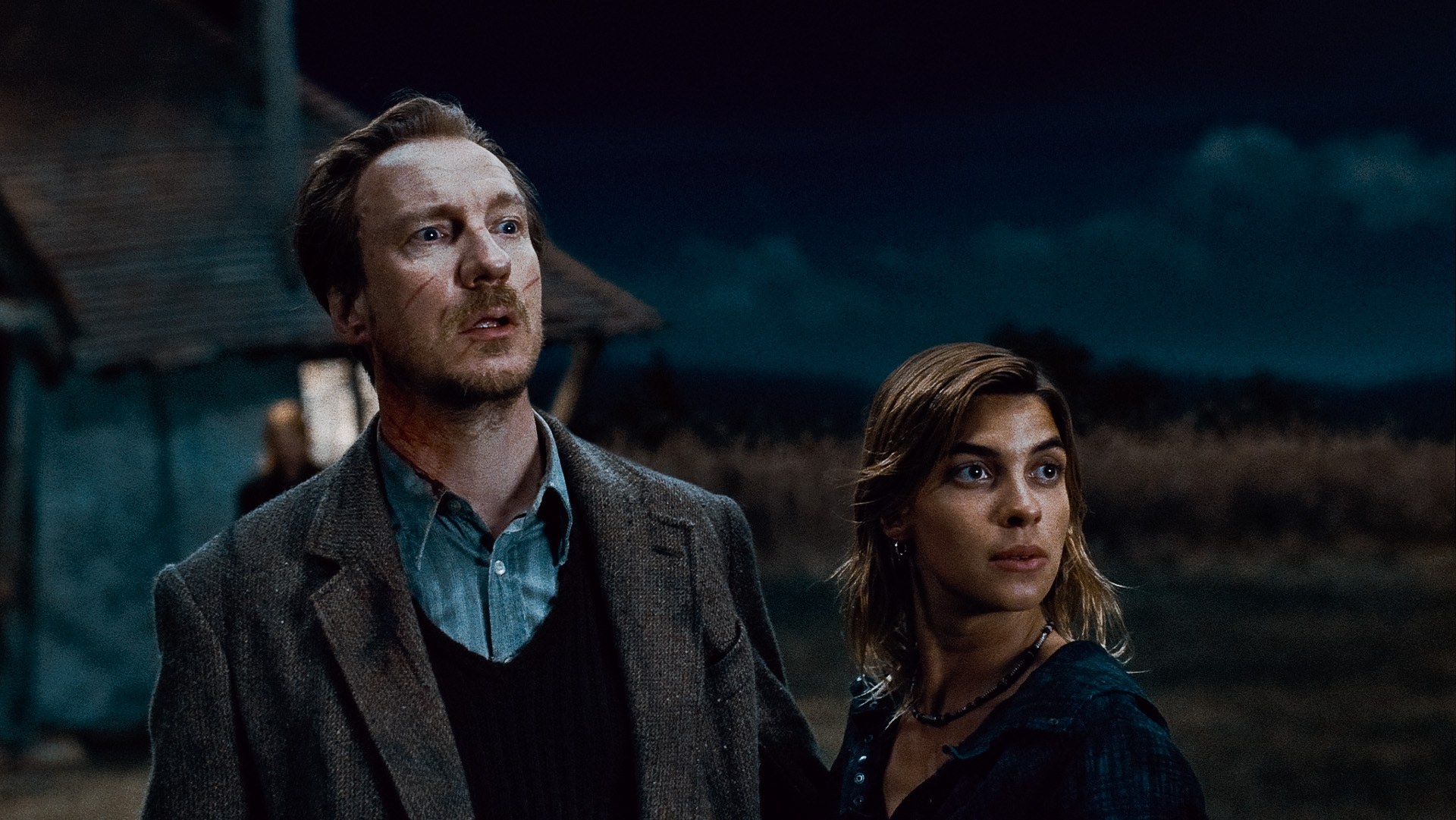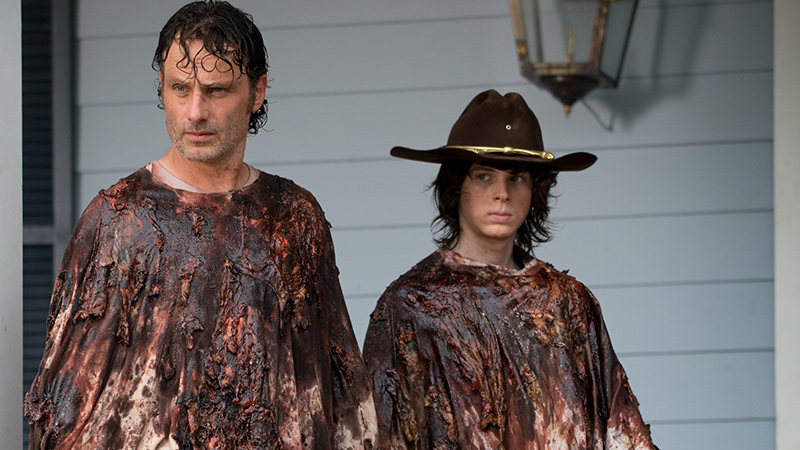We live in a time where it is easier than ever to complain about a plot development you don’t like. Writers, directors, creators — they’re all asked constantly about the deaths of their characters, but they all have their reasons. It’s just some are more acceptable than others.
Image: Sherlock, BBC
For Sir Arthur Conan Doyle, the reason to kill Sherlock Holmes in 1893’s The Final Problem wasn’t to further the story. It was because he was starting to hate the character and wanted to be free of him. Even though he eventually caved and brought Holmes back, Doyle described the death this way:
I have been much blamed for doing that gentleman to death, but I hold that it was not murder, but justifiable homicide in self-defence, since, if I had not killed him, he would certainly have killed me.
Other writers are more regretful. J.K. Rowling’s final Harry Potter books started wracking up an appalling body count. Rowling, though, once explained that she’d killed the minor character of Florean Fortescue for a plot that never made it into the final books. “He is not the first wizard whom Voldemort murdered because he knew too much (or too little), but he is the only one I feel guilty about, because it was all my fault,” she once wrote on Pottermore.

Image: Harry Potter, Warner Brothers
Rowling has also taken to apologising for one death a year, starting with Fred Weasley, whom she says was the “worst” for her:
Today I would just like to say: I’m really sorry about Fred. *Bows head in acceptance of your reasonable ire*
— J.K. Rowling (@jk_rowling) May 2, 2015
This year, her apology was for Remus Lupin, whom she decided to kill instead of the intended victim, Arthur Weasley:
Once again, it’s the anniversary of the Battle of Hogwarts so, as promised, I shall apologise for a death. This year: Remus Lupin.
— J.K. Rowling (@jk_rowling) May 2, 2016
In the interests of total honesty I’d also like to confess that I didn’t decide to kill Lupin until I wrote Order if the Phoenix.
— J.K. Rowling (@jk_rowling) May 2, 2016
Arthur lived, so Lupin had to die. I’m sorry. I didn’t enjoy doing it. The only time my editor ever saw me cry was over the fate of Teddy. ?
— J.K. Rowling (@jk_rowling) May 2, 2016
Like Rowling, A Game of Thrones‘ George R.R. Martin feels death as a narrative necessity and a hardship, but doesn’t take the blame. In an interview with Galaxy’s Edge, Martin said, “I love all my characters so it’s always hard to kill them, but I know it has to be done. I tend to think I don’t kill them. The other characters kill ’em. I shift off all blame from myself.”
In that same interview, Martin gives another non-plot justification: it’s all about honesty and truth. He said:
I don’t think of it in those terms, that I’m using death for any purpose. I think a writer, even a fantasy writer, has an obligation to tell the truth and the truth is, as we say in Game of Thrones, all men must die.
Merely killing off extras is a cheat, he says. In real life, the hero can die, the love interest can die, the best friend can die. He continued:
Death is so arbitrary. It’s always there. It’s coming for all of us. We’re all going to die. I’m going to die. You’re going to die. Mortality is at the soul of all this stuff. You have to write about it if you’re going to be honest, especially if you’re writing a story high in conflict. Once you’ve accepted that you have to include death then you should be honest about death and indicate it can strike down anybody at any time. You don’t get to live forever just because you are a cute kid or the hero’s best friend or the hero. Sometimes the hero dies, at least in my books.
It’s a sentiment echoed by the other internet patron saint of character death, Joss Whedon. He said of the death of Agent Coulson in The Avengers:
There’s a thing where you can do that so many times and there’s nothing at stake. But it’s difficult because you’re living in franchise world — not just Marvel, but in most big films — where you can’t kill anyone, or anybody significant. And now I find myself with a huge crew of people and, although I’m not as bloodthirsty as some people like to pretend, I think it’s disingenuous to say we’re going to fight this great battle, but there’s not going to be any loss.
“It doesn’t feel real if no one dies,” is a common defence, and one Whedon also used in Serenity: The Official Visual Companion. “Dramatically, the more I worked on [the screenplay], the more it became clear that in order to make people feel that this was real, a certain shocking thing is going to have to happen.”

Another person feeling that death is needed to keep dramatic tension alive is Robert Kirkman, who said on Inside the Actor’s Studio:
I wrote the comic for like eight years before the show even existed and you know I like to say “people gots to die,” because you never want to lose that — what you were talking about — you know if you go too long a period with characters surviving and being safe then you lose that element of “oh my god any of these characters could go at any moment.” That is a tremendously powerful engine that drives this whole thing and it is emotional.
And finally, there are deaths that drive the plot because it lets writers explore new things. It’s almost a thought experiment. For example, Sam Mendes was excited by the prospect of killing off M (Judi Dench) in Skyfall, and built much of the script on that idea. He told Coming Soon:
That was an idea that was floating around when I came onto the project and it was in an early treatment written by Peter Morgan, but it was not done, I thought in the right circumstances and in the right way, but the fact of it is there. It was one of the things that we were most interested — it was the only thing that we kept from the Peter Morgan treatment was that one idea. I was amazed that they would allow it to happen, and when they said yes, I thought, ”Right, that’s something that needs to then be built into the story from the very beginning. So, let’s go back and work that through.” That’s what we did, you know? That’s where we were headed the whole time.
While talking about Star Trek: The Wrath of Khan, director Nicholas Meyer gave perhaps the only defence of killing a character anyone’s ever really needed:
Once you decide that you’re going to have the death of Spock, then how does that affect the other people? Why is it there? I got a lot of stick from a lot of people from the very beginning about the idea of killing Spock. Somebody said, “You can’t kill him.” And I said, “Sure you can; the only question is whether you do it well.”
“Well” can mean a lot of things, but mostly it means that it works. If the story has lead up to it correctly. If the response by other characters feels genuine. Sometimes, if the world created is one where anything can happen, it works.
Sometimes it doesn’t. And the more arbitrary a death is, the more fans will argue — and that’s just as true now as it was back in 1893.
